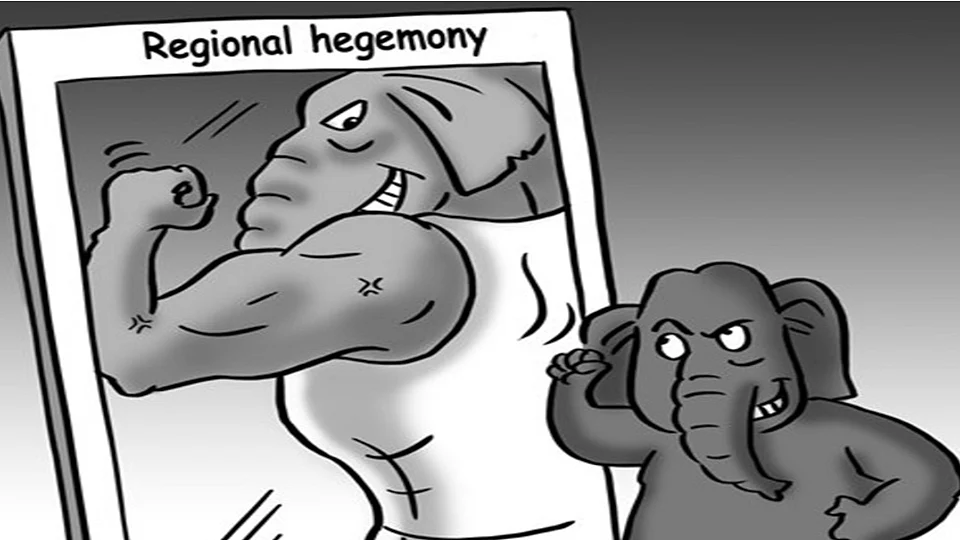The elephant should embrace the dragon, not the eagle
Following two provocative editorials on two consecutive days, including one that spoke of a secessionist move in Sikkim, Chinese state-run Global Times on Friday struck a more conciliatory note

Claiming that “there is harsh anti-America sentiment” in India—which prevents the country from being a close friend with the US, an article titled: India has more in common with China than with US, that appeared in today’s edition of Global Times, a Chinese state-backed English daily, reads, “India may face greater difficulties in developing economic ties with the US than with China.”
While today’s edit in the state-run daily stresses on ironing out creases in Sino-US relations, the note of moderation in the Indian context follows provocative editorials titled China can rethink stance on Sikkim, Bhutan and India will suffer worse losses than 1962 if it incites border clash published on July 4 and 5 respectively in the same newspaper.
With a reference to ensuing G20 Summit in Hamburg, the article—which is based on interview with Wang Dehua, director of the Institute for Southern and Central Asian Studies at the Shanghai Municipal Center for International Studies, states : “China and India should engage with each other...the current trend of economic cooperation will not change direction even amid tension at the border, if Modi is a sensible politician.”
Seemingly stung by “big bear hug that Modi gave US President Donald Trump in Washington on June 26”, Dehua tells Global Times, “Indian border troops crossed the China-India boundary at the Sikkim section and entered Chinese territory. It sparked concerns that New Delhi may want to embrace the US and turn its back on China. However, I don't think Modi would do a stupid thing like that. The principles of non-alignment have been in the minds of Indian politicians since independence. Additionally, India dare not risk cutting its economic ties with China.”
After US president Donad Trump’s decision to withdraw US from Paris agreement, Dehua maintains, China and India, as the world's largest and third-largest emitters of carbon dioxide, must show leadership on the issue. He emphasised that enhanced coordination between Beijing and New Delhi is needed.
“India shares more common interests with China than with the US. Thanks to the Make in India campaign that has been initiated by the Modi administration, India is thirsty for manufacturing investment. However, with Trump's efforts to bring manufacturing back to the US, China is one of India's few options for ideal investment sources. Although India has refused to join China's Belt and Road initiative, the country has been positive in attracting Chinese investment through multilateral platforms like the Bangladesh-China-India-Myanmar economic corridor,” the article says.
The article adds, “Media reports always focus on the ‘dragon-elephant’ rivalry, campaigns to boycott Chinese products and other negative news, but in reality, there is a strong will in India to attract Chinese investment, which can build a foundation for sustainable Sino-Indian economic ties.”
“The Indian military industry, which previously relied on imports, shows that the country has already made some achievements in the localisation of production and self-dependent innovation. As India's national and economic strength grows, competition between the two countries may become fiercer, but benign business competition caused by India's rise is welcome. I don't worry about that,” Dehua notes.
Follow us on: Facebook, Twitter, Google News, Instagram
Join our official telegram channel (@nationalherald) and stay updated with the latest headlines
- Donald Trump
- Chinese media
- Global Times
- Prime Minister Narendra Modi
- US President Donald Trump
- sikkim standoff
- Indo-China border
